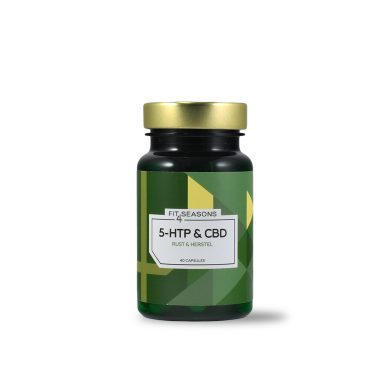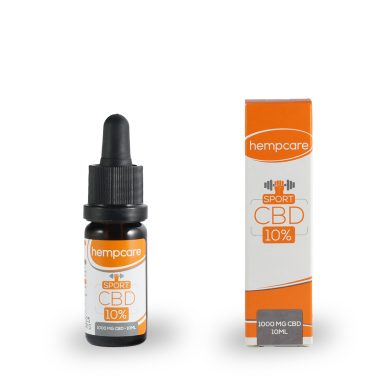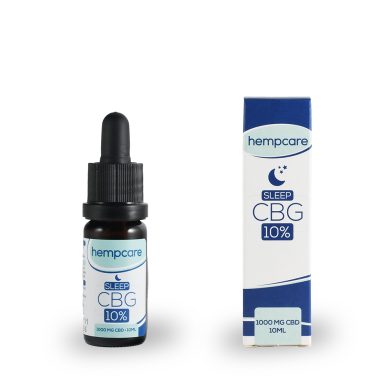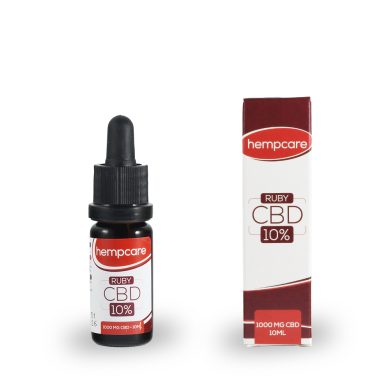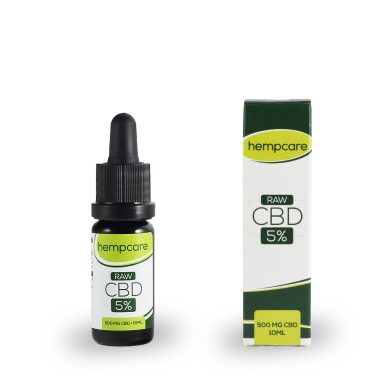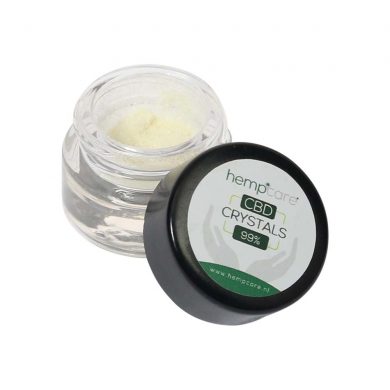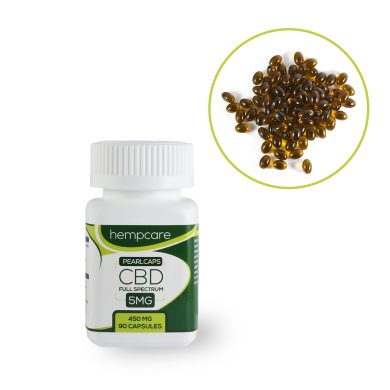- Free shipping above €125,-
- Safe and secure payments.
- Track & Trace your orders.
- Personalized support & advice.
- 9.8/10 customer rating.
WHAT IS CBD?
Cannabidiol or CBD, is one of the main cannabinoids that can be found in cannabis plants. With most countries around the world, working to legalize medical cannabis - CBD plays a huge role in how medical cannabis products can be used to improve lifes of many.
It's a non-psychoactive substance (meaning it will not get you "high") that can be used to help you improve sleep, make you relax, reduce stress and anxiety - while maintaining your mind clear.
WHAT IS CBD OIL?
High-quality cold-pressed CBD oil is the most common way that most users take their CBD. It comes with a dropper, so it's easy to measure your daily CBD intake. Smartific select only the most trusted, high quality CBD oil producers in the Netherlands and we are proud to present you all the best CBD products on the market.
WHAT ARE CBD CAPSULES?
If you hate the taste of CBD oil or cannabis related products, but still want to benefit from everything that CBD can offer you - CBD capsules is the best way to have a steady, easily measurable CBD intake, without the need to taste it. CBD vegan capsules simply dissolves in your stomach, so there is no need to frown every time you are taking your CBD.
WHAT IS PURE CBD CRYSTALS?
Pure CBD crystals is the best product if you are looking to broaden the ways you consume your CBD. It can be used to make wape liquids, added to food and because of it's handy crystal form - the possibilities what can be CBD-rich are endless.
We don't recommend CBD crystals only if you never tried CBD - because it can be more difficult to dose your CBD intake properly.
LEARN MORE ABOUT CBD
Because CBD can be used to help with various aspects of your life, Smartific provides you and extensive our CBD FAQ where you can learn more about all the benefits that this medical cannabinoid can have.
Frequently asked CBD questions
Why is CBD so popular?
With the scientific community releasing new studies on CBD health benefits every day, in the last decade – most clickbaity media outlets started embracing CBD as a “cure for all” when at the same time as some manufacturers used the vague restrictions surrounding cannabis in their favor and started marketing CBD with unproven claims.
That might help with the legalization/decriminalization of the compound all around the world, but there are just a few fully medically proved truths when it comes to CBD. Most bigger claims, even when preclinical trials have some real signs of big health benefits – are still awaiting its clinical trials to be proven by the scientific community.
How does CBD work?
CBD is one of ~115 different Cannabinoids found in cannabis plants (and our bodies!).
Cannabinoids, also known as phytocannabinoids interacts with your body and brain through a very complex endocannabinoid system (ECS) that is most likely involved with physiological and cognitive process regulation (including fertility-pregnancy, various activities of the immune system, appetite, moods, memory and even pain sensations). It is believed that our endocannabinoid systems produce our own “cannabinoids” – known as endocannabinoids. Cannabinoids that come from cannabis plants (phytocannabinoids), whenever ingested – will enhance our naturally occurring cannabinoid production and/or will behave just like our internally produced cannabinoids would.
Can CBD make you feel high?
No. Cannabidiol or CBD is known to have numerous health benefits, and CBD does not have any psychoactive, “euphoric” or other mind-altering effects like THC has. CBD is mostly used as “relaxing, but not intoxicating substance” and most users just record feelings of relaxation, calmness, and restfulness. But in a vast majority of cases, any of the effects are not similar to those of THC.
Even though CBD doesn’t make you “high” as THC does – cannabidiol has other effects that will affect your state of being, that’s why we recommend starting with very low doses, learning how CBD effects you personally and only then adjusting the way you want to use CBD.
How long does it take for CBD to work?
Generally – you should feel the CBD (Cannabidiol) effects in your body in the first 1-5 hours. The time can be longer or shorter, based on the ingestion method, dose, body health, metabolism, sensitivity, body mass among many other factors.
Most experts agree that the most beneficial use of CBD can be achieved with daily consistency, meaning you have to use CBD in a constant dose for multiple days to feel the whole spectrum of CBD effects. It is also known that different people can react differently and some might experience very noticeable strong and fast emerging effects after first-time use, while others can have just a mild reaction even after continuous weekly usage.
That’s why we recommend starting slow, with a low CBD dose (10-30mg per day) and increasing consumption only after you have followed/analyzed your body and personal reactions for at least a week or two.
How does CBD make you feel?
Cannabidiol (CBD) is known to make you feel calmer, more focused, and relaxed. Most first-time users report feeling more “worry-free”, as if their life struggles and burdens were removed from their shoulders – thus allowing users to relax without intoxication and focus better without anxiety/stress.
Most noticeable relaxation happens in the muscles, as CBD releases the tension from your muscles. Another quite noticeable CBD effect could be sleep quality increase and less grogginess in the morning after CBD usage. While under the influence of CBD you might feel more at ease and most importantly – CBD is not psychoactive, so you will never get high/intoxicated from taking Cannabidiol.
Other possible CBD effects are – could potentially help with insomnia, lower anxiety, decrease pain, neutralize personal discomfort, removal of stress, negative feeling disappearance, anti-inflammatory effects among some other possible uses.
Is CBD psychoactive?
In the vast majority of cases, CBD shows no psychoactive effects among its users.
When used in pure form, without THC – Cannabidiol (CBD) will not intoxicate you and will not make you high. With that being said, CBD can have relaxing properties, thus you should evaluate yourself properly and avoid driving or operating heavy machinery during/after CBD consumption.
Do all marijuana plants have CBD?
In most cases, the vast majority of Cannabis/Hemp plants will have most of ~115 possible cannabinoids in them. The biggest difference is going to be the concentration of those cannabinoids, which means almost all strains of cannabis will have some amount of CBD in them.
In the last 20 years, the recreational cannabis industry was mainly focusing on growing THC rich cannabis, thus raising the average THC levels in most strains way up. In most cases that meant that CBD levels were going down rapidly. That’s why most of the marijuana plants now have high THC/low CBD combinations in them.
This only started to change in the last couple of years – with the rise of CBD medical trials and the overall public opinion shifting towards the health benefits of cannabis. In most cases, the reason why there is a cannabis legalization wave around the world has everything to do with CBD properties and nothing to do with THC recreational use. Unfortunately, after most legalizations pass – this has a bigger impact of THC rich recreational cannabis growing-selling, than on CBD industry improvements and growth.
Before that, in nature, most cannabis strains were more balanced – with almost equal CBD and THC levels.
What are cannabinoids?
Cannabinoids (most known among 115 different others are THC and CBD) are some of the chemical compounds produced by cannabis flowers that can easily affect our bodies. Most of the cannabinoids work by imitating other naturally produced compounds (called endocannabinoids) commonly found in our bodies. Our endocannabinoid system produces naturally occurring substances that work on different receptors, those substances are called endocannabinoids, and they mostly affect our nerves, brain, central nervous system, and immune cell functions.
(Sources: Source: Szaflarski JP, Bebin EM, Cannabis, cannabidiol, and epilepsy–from receptors to clinical response. Epilepsy Behav. 2014;41:277-82 )
Is CBD the only cannabinoid in the hemp plant?
No, CBD is just one of ~115 different known cannabinoids commonly found in cannabis (hemp or marijuana) plants.
What is the entourage effect of CBD?
The entourage effect is a well-documented phenomenon that occurs when CBD is ingested in combination with other cannabinoids found in cannabis plants. There are numerous different terpenes present in cannabis plants and whenever different cannabinoids are taken together with other active ingredients found in cannabis/hemp plants – the effects are much more effective than taking cannabinoids separately.
Basically, it’s a theory that compounds in cannabis work better when they are taken together and not separately. Meaning the expectancy is that your results will be always better when cannabis compounds are ingested together, rather than used separately in purified form.
What is the difference between CBD and THC?
The short answer would be – THC (tetrahydrocannabinol) is a recreational psychoactive substance that makes you feel high and CBD (cannabidiol) is a calming non-intoxicating substance known for its health benefits that will not get you high.
But everything in nature has to be more complex than that – CBD and THC are known as the “main balancing parts of cannabis”, being the most studied cannabinoids (among ~115 other) in any hemp/cannabis plant. Why balancing parts? CBD is known to reduce side-effects of THC and both compounds are known to be in balance in most naturally occurring cannabis strains, meaning as THC levels in a crossing process go up, CBD levels will go down and vice versa.
That means CBD and THC have multiple levels of intricate connections/correlations between them that scientists are just starting to discover and understand how these compounds work together.
Do CBD products contain THC?
No, most CBD products will intentionally be made THC-free as most CBD users are looking for relaxing properties and health benefits and don’t want the psychoactive, mind-altering effects (known as being “high” or “stoned”) that THC would bring.
Is CBD Oil and Hemp Oil the same thing?
“CBD oil” means that “this oil has CBD (Cannabidiol) as one of the active ingredients in it”. In rare cases, for health benefits – the oil part can be taken from another plant (coconut oil or other) and the CBD can be added in its pure form to create a unique supplement.
Now, “Hemp oil” (or hemp seed oil) means this is “oil made from hemp seeds”, meaning there is no or almost no CBD in that oil, but it has most of the compounds found in cannabis seeds.
Both of these types of oils can have their own unique potential health benefits.
Can you mix THC and CBD?
Yes.
Naturally found in nature, most cannabis plants had a balance between these two substances – meaning if the plant would have 10% THC, it would have a similar amount, 10% of CBD. In the past 20 years, high scale recreational cannabis growing and plant breeding (crossing) allowed us to make even more and more THC rich cannabis strains (which means a stronger “kick” for the recreational user), but at the same time, CBD levels dramatically decreased in most popular cannabis strains grown today.
Recreational cannabis strain CBD/THC averages in Europe could be ~15%THC/3%CBD when at the same time in North America it can be even ~25%THC/0.2%CBD. Most experienced cannabis users can sometimes confirm this with comments like – “With super high THC strains the high feels less natural and synthetic, instead of being taken to a chill dreamlike calm place, you just get hit with a stick and throw in to fast elevator that doesn’t stop going up”.
Moreover, the entourage effect tells us that you can expect better results when different cannabinoids are ingested together at 1/1 or a similar ratio.

